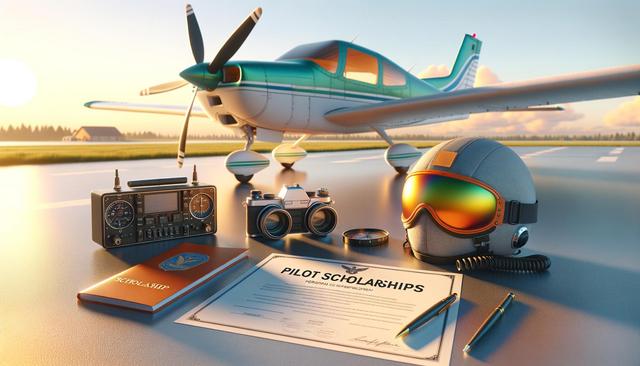Guide to Qualifying for Pilot Training Aid
Understanding Pilot Scholarships
Pilot scholarships are financial aids specifically designed to help aspiring pilots cover the costs associated with flight training. These scholarships can significantly reduce the financial burden, making it more feasible for individuals to pursue a career in aviation. The availability of these scholarships varies, with some offered by aviation schools, private organizations, and government bodies. To qualify for these scholarships, candidates typically need to demonstrate a strong interest in aviation, academic excellence, and in some cases, financial need. Understanding the various types of scholarships available and their specific requirements is crucial for applicants to increase their chances of success.

Types of Pilot Scholarships
There are several types of pilot scholarships available, each catering to different needs and qualifications. Some scholarships are merit-based, rewarding those with outstanding academic achievements or exceptional skills in aviation-related fields. Others are need-based, aimed at individuals who require financial assistance to pursue their training. Additionally, there are scholarships specifically for underrepresented groups in aviation, such as women and minorities, to promote diversity within the industry. Understanding these categories can help applicants identify which scholarships align with their personal circumstances and career aspirations.
Eligibility Criteria and Application Process
Eligibility criteria for pilot scholarships vary depending on the provider. Common requirements include a minimum age, usually 17 or older, and a high school diploma or equivalent. Some scholarships may also require candidates to be enrolled in an accredited flight school or to have a certain number of flight hours. The application process typically involves submitting an online form, providing academic transcripts, a resume, and sometimes a personal statement or essay explaining the applicant’s passion for aviation and career goals. It’s essential to carefully read through the requirements and ensure all documents are submitted before the deadline to avoid disqualification.
Tips for a Successful Application
To enhance your chances of securing a pilot scholarship, it’s important to present a compelling application. Start by researching the scholarship thoroughly to understand its mission and values, and tailor your application to reflect these. Highlight your achievements, experience, and dedication to aviation in your resume and personal statement. Seeking recommendations from instructors or professionals in the aviation industry can also strengthen your application. Lastly, ensure your application is well-organized and free from errors by proofreading it multiple times or having someone else review it.
Additional Resources and Support
Aspiring pilots can find additional support through various resources that offer guidance on scholarships and flight training. Many aviation organizations provide informational webinars, mentorship programs, and networking opportunities to connect applicants with industry professionals. Online forums and social media groups can also be valuable platforms for sharing experiences and advice on navigating the scholarship application process. By utilizing these resources, candidates can gain insights into the aviation industry and enhance their chances of achieving their dream of becoming a pilot.
